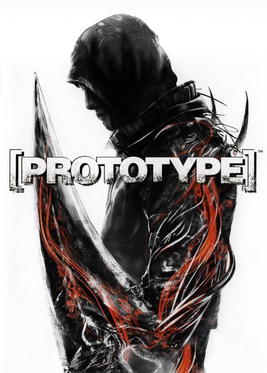Welcome to the final week of the read-along of Kushiel’s Avatar by Jacqueline Carey, a week which also marks the end of the read-along of the trilogy. Many thanks to Susan of Dab of Darkness for organizing this read-along, and for inspiring me to read to read a series that I have ended up enjoying so much. Also, many thanks to the other participants—Emily, Lynn and Lisa—for all of their discussion and differing perspectives. I hope I will be able to read and discuss more books with you in the future! I provided the questions this week, and they cover chapters 83 to the end of the novel, so beware of spoilers for the entire trilogy below!
1. Phedre stops by to extract a promise from Melisande. Why do you think Melisande chose the condition she did, out of the two that Phedre asked for? Do you think she has some other scheme afoot that no longer involves the d'Angeline throne?
I think Phedre was right that this was the only time she would be able to extract a promise from Melisande, and I believe that she will keep it. I am suspecting that Melisande may have chosen the condition that least interferes with her current schemes, though. There are other sources of power besides the d’Angeline throne, so I’m wondering if she is turning her eyes elsewhere. I really don’t know what exactly she might be after, starting a cult based around, but I suspect she’ll show up again in future books.
2. When Phedre gets back to the City of Elua, she faces Ysandre's anger. Do you think Ysandre treated Phedre & Joscelin fairly? What do you agree or disagree with in her reaction?
I was actually pretty disappointed with the way Ysandre handled this. In their first meeting, I lost a fair amount of respect for her when Ysandre brought up that Phedre’s profession and lack of noble blood made her worth less than other nobility. Phedre has probably done as much or more than any noble to prove her value to Terre d’Ange, so that felt like a much lower blow than Phedre’s bringing up Anafiel Delaunay. To be honest, her denigrating Phedre’s position made me more angry than her delaying Hyacinthe’s rescue. He had endured for over a decade, so adding a few more months before his rescue was harsh, but not life-threatening.
After seeing how it all played out in the end, I suspect it was just a show of dominance from Ysandre, so it didn’t look like she could be so easily manipulated by a Comtesse. I think this could have been avoided by Ysandre meeting with Phedre and Joscelin privately, and then deciding how to spin things in public.
3. The next major event of the story is the confrontation with Rahab. Did this go how you expected, or were there any notable surprises?
I did not expect Phedre to take on the curse herself, and I didn’t expect Kushiel’s Dart to come into play. It was a really powerful confrontation, though, and I appreciated that Phedre tried to convince Rahab to show mercy before she used the Name of God. I don’t think he necessarily deserved mercy, but I respect Phedre’s compassion as well as her ability to do what has to be done.
4. Do you think Hyacinthe will (or should) pass on his knowledge and power at some point? Also, how much of an impact do you think he will have on the Tsingano culture?
I feel like I understand a lot more about the Master of the Straits deal than I did before! I had assumed his power would be gone with the curse, so I hadn’t really thought about this in advance. It seems like his power is pretty important for the defense of Terre d’Ange and Alba, so it would make sense for him to pass it on, especially now that it doesn’t come with a curse. I expect he’ll need a young apprentice to carry it to the next generation. I think this knowledge is too powerful to be lost, so I hope he passes it on.
As for the Tsingano, it looks like he has already had an indirect impact on their culture. They seem to be rethinking their stance against Didikani and the Dromonde, at the very least. I liked that he did his best to help them move more towards gender equality, though that kind of change would certainly take a long time to really take root.
5. At the end, all is well, and Phedre seems content with her life. Was there anything that stood out to you in the resolution of the story, or in Phedre's massive party in Night's Doorstep? How do you feel about the way her trilogy has ended?
I loved the simple happiness of this ending. Phedre and Joscelin are happy (as we see in the bath scene…), they have their adopted son safe at home, Hyacinthe is free, and all is forgiven with Ysandre. Phedre’s party was also very impressive, and I think it was important that Hyacinthe’s value was finally acknowledged by all in the City of Elua. It was also a reflection of the beginning of the series—Phedre began as a child, quietly attending elaborate parties, now she is a woman in her thirties that has the money and power to throw them in honor of others.
There has been so much suffering throughout this trilogy, I think this conclusion was a good balance. Their story is also clearly not yet over, since they still have many years ahead of them raising Imriel, enjoying their hobbies at Montreve, and interacting with the d’Angeline court. “Love as thou wilt,” was a fitting final thought for the series, and now Phedre, Joscelin, Imriel, and others are finally free to do just that.









